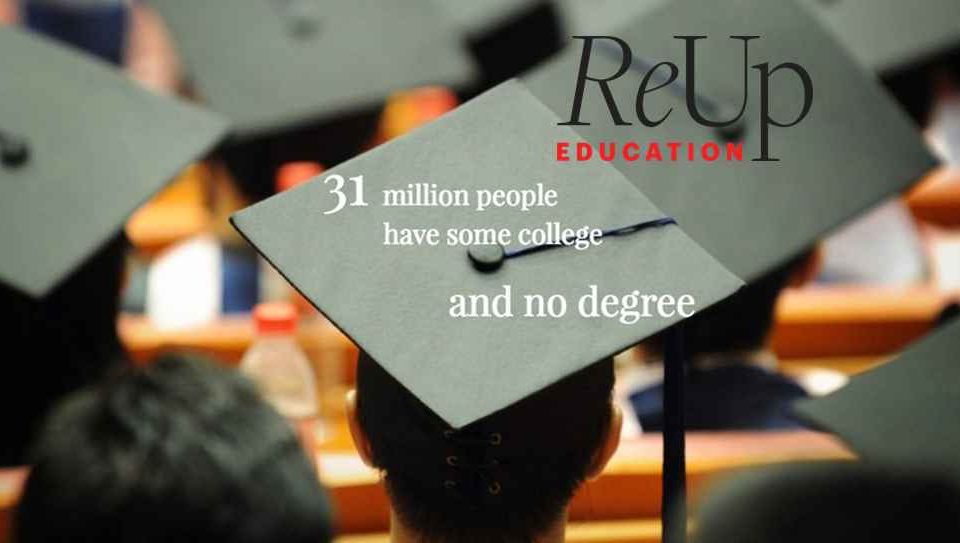Edtech startup ReUp Education secures $6 million to help colleges re-enroll students

Each year, millions of students drop-out of college or university – some 37 million Americans in the last two decades. The reasons students drop out are multi-dimensional, with the primary barriers to completion being financial, work, family obligations, health-related issues, and motivation. Many of these “Forgotten Students” leave college with mountains of debt (over $27 billion annually) and without the earning power of a diploma.
The social, economic, and human potential loss is enormous. Enter ReUp Education (ReUp), an edtech startup that leverages data, technology, and coaching to re-enroll students who have left college and support them through to graduation. To achieve this goal, ReUp partners with universities and community colleges to find, engage, and empower students who have left school to return, navigate a path to complete their degree, and achieve their goals.
Yesterday, ReUp announced it has closed $6 million Series A funding round. TDM Partners and Hereditas Capital Management led the funding round, joining existing social impact investors Serious Change, Strada Education Network, Impact Engine, Michelson Runway, and Bisk Ventures.
Founded in 2011 by Nitzan Pelman, Paul Freedman, and Sarah Horn, ReUp helps colleges and universities find and re-engage students who have stopped out. Over the past two years we’ve helped “re-up” over 8,000 students and recapture over $18 million in tuition revenue for our partners using a proprietary combination of data, technology, and coaching.
“At a time when one in five first-year students don’t return for a second year, supporting students who have stopped-out to help them re-enroll is absolutely critical to fulfilling higher education’s promise of not just access—but completion,” said Sarah Horn, CEO of ReUp Education. “This investment represents both powerful validation of our social impact mission and broader recognition of the imperative of helping adults find a pathway back to college.”
To address this crisis, ReUp has developed a three-pronged solution that utilizes a blend of data, technology, and coaching to support stopout students in returning to school and achieving their goals at scale. Building on more than 10 million data points collected over two years, their Engagement Engine and predictive analytics enable teams of professional Success Coaches to prioritize which students to reach out to and when. The technology platform closely monitors coaching quality leveraging natural language processing and machine learning to evaluate interactions with students.
Throughout the student journey, success coaches utilize ReUp’s proprietary coaching model to address barriers that students frequently encounter and engage with students around their motivations to return and succeed. Forty percent of ReUp success coaches are people of color, fifty-five percent are first-generation college graduates, and forty-five percent are former stop-outs.
“Re-enrolling former students and adults with some credit, no degree represents perhaps one of the most important challenges, and opportunities, that higher education faces as we retool to changing student demographics and new financial headwinds,” said Jim Grotrian, executive vice president of operations at Bellevue University. “As one of ReUp’s first partners, we’re grateful for the powerful technology, collaboration and focus on outcomes that their team has brought to the table. It’s helping us to fulfill our mission and reach and re-engage more students within our region.”
Since 2015, the company has helped bring back over 8,000 students with the benefit of insights generated from a network of more than thirty partner colleges and universities and more than 400 re-enrolled students have graduated to date.
“This is about solving a pressing problem for individuals, and institutions, alike,” said Anne Kubek, Chief Operating Officer of ReUp Education. “We’re helping students to leverage prior investments in education to put them on a path to higher wages. We’ve also helped colleges generate more than $25.8 million in new revenue. In the end, it should be a virtuous circle for students, institutions and society.”




